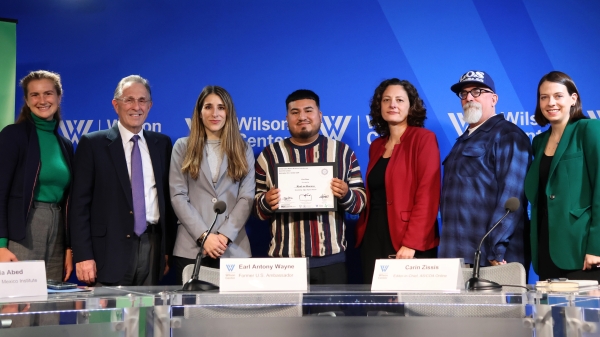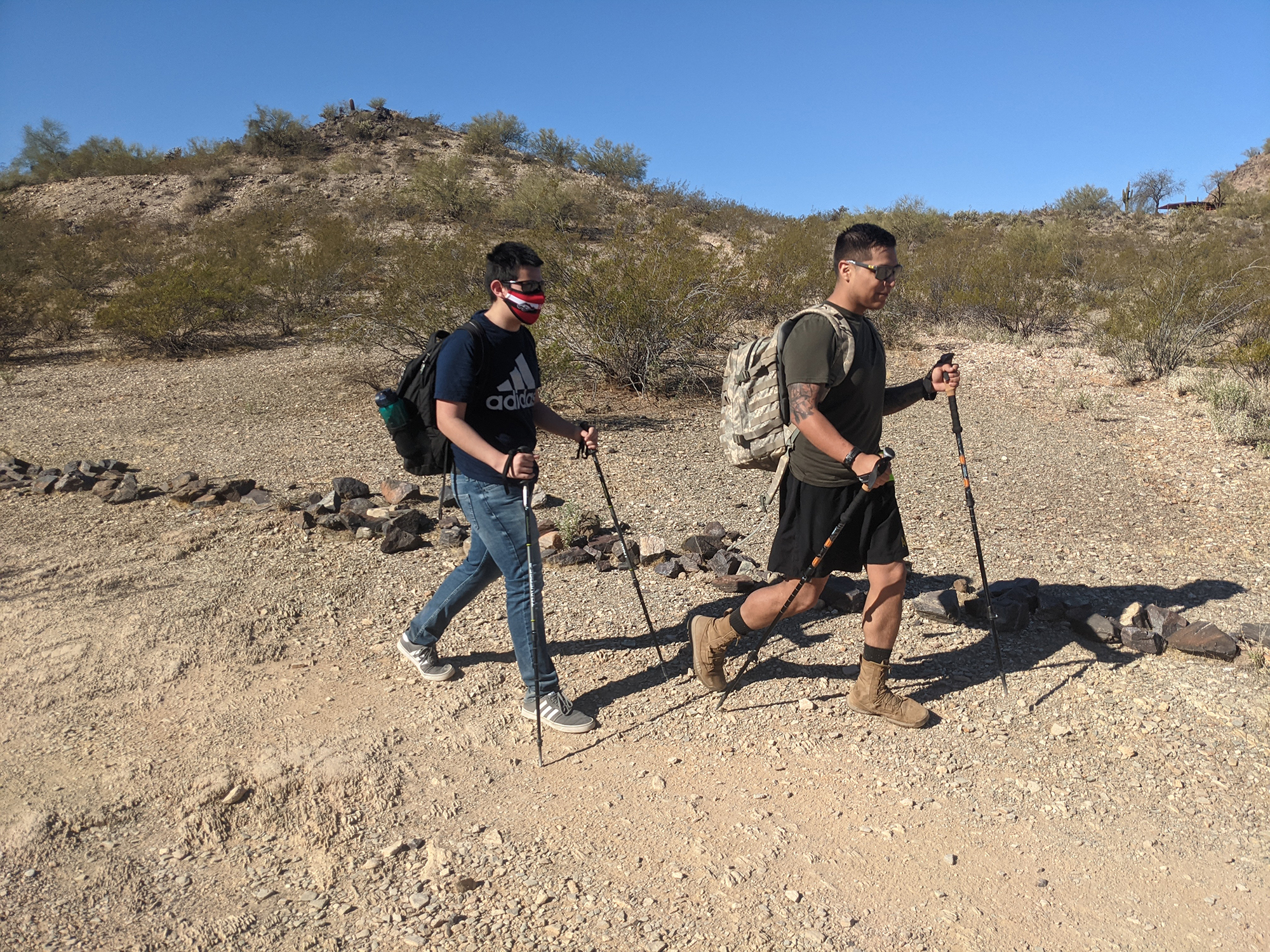Foundation for Blind Children hires 11 Mary Lou Fulton Teachers College students prior to graduating

Cameron Smith and a young student explore a book.
Eleven students in a new Arizona State University Mary Lou Fulton Teachers College degree program have been hired by the Foundation for Blind Children, after just a year in the program.
“Arizona has a 33% shortage of teachers of the visually impaired,” said Marc Ashton, CEO of the Foundation for Blind Children. “And together, ASU’s Mary Lou Fulton Teachers College and the Foundation for Blind Children are going to solve this problem — in just a few short years.”
The Bachelor of Arts in Education in Special Education (Visual Impairment) program graduates teachers of students with visual impairments (TVIs) who go on to work with blind and partially sighted students in public and private schools, as well as other organizations that serve the visually impaired. It also leads to dual certification in visual impairment and mild-moderate special education. Students in the program complete their internships and residencies at the Foundation for Blind Children.
Adele Gray (BAE ’22) has been with the foundation for three years — first in an administrative role, then as a paraprofessional and now as a teacher in one of the elementary classrooms. Gray also has a bachelor’s degree in nonprofit management from ASU, but came back to earn her degree to become a TVI.
“I love working at the foundation and working with children. This is exactly what I was looking for,” she said.
The immersive program teaches students how to perform assessments to gauge a student’s visual ability and how to teach visual and compensatory skills, such as concept development and organizational skills, as well as communication skills including sign language, tactile symbols and braille.
While the goal of all TVIs is the same — helping the student to live independently — there are many career paths from which to choose. TVIs have the option to work with babies, children, teens or adults, and can decide to work in a classroom, facility or home setting.
In her classroom, Gray may have up to eight students at a time, along with a paraprofessional to assist her.
“I work on each student’s individual education plan and make educational materials accessible to each student,” Gray said.
Working with the families of her students is common and to be expected, Gray said: “It brings me so much joy to work with families in supporting their children and helping them reach their goals.”
Cameron Smith (BAE ’22), a paraeducator at the Foundation for Blind Children, moved from West Virginia to pursue her degree at ASU — in music.
“In one of my education courses, Marc Ashton introduced our class to the TVI program and shared his story. I changed my major that day,” Smith said. “I genuinely felt as though this specific field embodied my philosophy of education: it’s personalized.”
Paraprofessionals like Smith work alongside certified TVIs, assisting functional vision assessments and learning how to help students best access the world around them. Smith also works with other service providers, such as orientation and mobility specialists and music therapists, to assist students in achieving goals through preferred learning strategies.
“The beauty of it all is that while advocating for our students to thrive in a vision-centric world, we also learn how to see the world in a different perspective,” Smith said.
Ivan Santiago (BAE ’22) began working at the Foundation for Blind Children as an administrative assistant in 2019, and when he learned about the new degree program, he “jumped at the opportunity.”
Ivan Santiago (right) leads student Cesar Yanez on a desert trail.
“I have always had a sense to serve and to be a teacher who makes a difference. I saw TVIs making a difference in the lives of our students and I knew I had to join the program,” Santiago said.
Santiago, who now teaches adult students, said he enjoys the versatility the career offers: “Whether it be a preschool, classroom teacher or a traveling teacher, there are so many ways a TVI can make a difference."
Making a difference is one way of putting it. Santiago is participating in the Foundation for Blind Children’s Challenge Event, in which TVIs take a group of students with visual impairments and help them conquer tremendous challenges. This summer, Santiago and the group will be hiking down the Grand Canyon’s Bright Angel Trail, where they will raft 50 miles of the Colorado River.
“This is the culmination of the difference that the Foundation for Blind Children and its TVIs make: Showing students that if they put their mind to it, they can accomplish anything,” Santiago said.
More Arts, humanities and education

Kaleidoscope short film contest inspires powerful binational filmmaking in its second year
“We come to this country not to steal anybody’s jobs but to take advantage of the opportunities that the rest ignore. We’ve been…

School of Social Transformation faculty member assumes new title with NSF
School of Social Transformation faculty member and Founding Executive Director of the Center for Gender Equity in Science…

ASU's Neal Lester reflects on life, death of poet Nikki Giovanni
When Neal Lester heard on Monday that poet and activist Nikki Giovanni had died, the news hit hard.Lester, the founding director…
